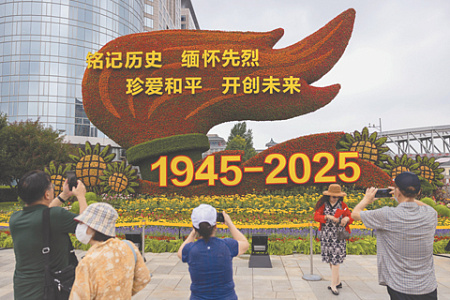
European Union ambassadors in Beijing are reportedly discussing a collective boycott of a major upcoming military parade, a move prompted by the expected attendance of Russian President Vladimir Putin. The potential diplomatic snub highlights the growing international repercussions of the war in Ukraine, creating a delicate situation for host nation China.
The presence of President Putin on the viewing stand is a primary concern for European diplomats, especially given the possibility that Russian military units could also participate in the march. For EU nations that have heavily sanctioned Moscow and provided extensive support to Kyiv, attending such an event alongside the Russian leader would be seen as a significant political contradiction and a betrayal of their stance against the ongoing conflict in Ukraine. The decision is further complicated by the need to avoid alienating Japan, a key Western ally with its own historical sensitivities tied to Chinese military commemorations.
While a high-profile European boycott would undoubtedly be an irritant for Beijing, analysts suggest that China’s reaction may be tempered. As the EU is China’s largest trading partner, Beijing is unlikely to engage in severe escalation over the diplomatic protest. However, it is widely expected that Chinese state media would frame the boycott as an attempt by Western powers to ignore the historical lessons of the global fight against fascism and militarism, casting Europe as undermining historical solidarity for short-term political gains.
This diplomatic friction over the parade is part of a much larger and more critical geopolitical question: what role, if any, will China play in guaranteeing a future peace settlement for Ukraine? When pressed on whether Beijing would be prepared to offer security guarantees to Kyiv as part of a potential peace agreement, Chinese Foreign Ministry spokesperson Mao Ning offered a characteristically cautious and ambiguous response, stating only that China’s position is “consistent and clear” and that it would continue to “promote a political settlement.”
This deliberate ambiguity from official channels reflects Beijing’s careful balancing act. Chinese foreign policy experts argue that Western speculation about driving a wedge between Beijing and Moscow is based on outdated “Cold War dogma.” They assert that the strategic partnership between Russia and China, built over decades on a foundation of mutual political trust, economic cooperation, and military coordination, is resilient. From this perspective, any Western attempts to isolate Russia from China are viewed as unlikely to succeed due to the deep, structural nature of their relationship.
According to some Russian analysts, China would only participate in security guarantees for Ukraine under specific, internationally recognized conditions. Such a scenario would require a resolution that is agreed upon by both warring parties and, crucially, endorsed by the United Nations Security Council, where China holds veto power. This position allows Beijing to maintain its pro-peace rhetoric while committing to nothing until a multilateral, UN-backed framework is in place.
Ultimately, the situation underscores the complex nature of EU-China relations. Despite a deeply intertwined economic partnership, political ties remain cool, marked by European restrictions on Chinese investment in sensitive security sectors. This dynamic of economic dependency and political distrust forms the backdrop for every diplomatic encounter, from parade invitations to the monumental task of negotiating global security.
